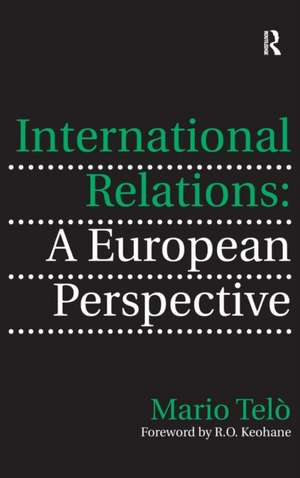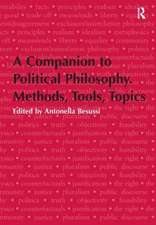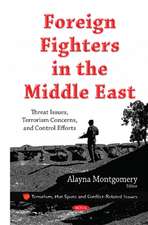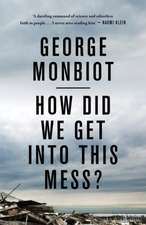International Relations: A European Perspective
Autor Mario Telòen Limba Engleză Hardback – 28 oct 2009
Preț: 1000.27 lei
Preț vechi: 1219.84 lei
-18% Nou
Puncte Express: 1500
Preț estimativ în valută:
191.42€ • 198.64$ • 159.100£
191.42€ • 198.64$ • 159.100£
Carte tipărită la comandă
Livrare economică 17-31 martie
Preluare comenzi: 021 569.72.76
Specificații
ISBN-13: 9780754678151
ISBN-10: 0754678156
Pagini: 234
Dimensiuni: 156 x 234 x 14 mm
Greutate: 0.45 kg
Ediția:1
Editura: Taylor & Francis
Colecția Routledge
Locul publicării:Oxford, United Kingdom
ISBN-10: 0754678156
Pagini: 234
Dimensiuni: 156 x 234 x 14 mm
Greutate: 0.45 kg
Ediția:1
Editura: Taylor & Francis
Colecția Routledge
Locul publicării:Oxford, United Kingdom
Recenzii
'To have a sophisticated understanding of contemporary world politics, one needs to have a grasp of the schools of thought discussed in this volume. They provide important concepts, critiques, and questions that can illuminate a variety of issues. I therefore applaud the appearance of this volume and hope it has a wide readership.' Robert O. Keohane [taken from the Foreword] 'Theoretical debates in IR have increasingly been dominated by American perspectives and concerns. This book is refreshing because it offers a European perspective on these debates. Mario Telò argues persuasively that the development and persistence of the European Union requires adjustments in all the leading theories of IR. His book will be required reading for all students of international politics.' Andrew Gamble, University of Cambridge, UK ’Mario Telò offers quite simply the best articulation to date of the impact of the European project on international relations theory. Not all scholars will agree with his thesis that the project really is paradigm changing. But no scholar keen to present a comprehensive theory of contemporary international politics should think they can do so without engaging with him.’ Richard Higgott, University of Warwick, UK ’...an ambitious, rich & multifaceted book, which should be of interest to academics, students & policy-makers worldwide, interested in the (current & future) governance architecture of our global society, in general, and the role therein played by the EU & other supranational regions, in particular.’ Journal of Common Market Studies
Notă biografică
Mario Telò, Université Libre de Bruxelles, Belgium
Cuprins
Foreword, Robert O. Keohane; Introduction: international relations theory: a European perspective?; Origins of the international relations theories and the emerging realist paradigm; Systemic approaches in the United States; International political economy; The influence of K. Marx on international relations; Beyond realism and neo-realism; Institutionalist theories; A post-sovereign world?; Constructivist approaches; Foreign policy analysis and the impact of domestic factors; The contribution of European studies to the renewal of international relations theories; Conclusions; Appendix; Index.
Descriere
International Relations: A European Perspective presents the main schools of international relations while underlining the added value of the European approach. Contrary to US or East Asian perspectives, a European viewpoint adopts a more critical and innovative approach to traditional divides.









